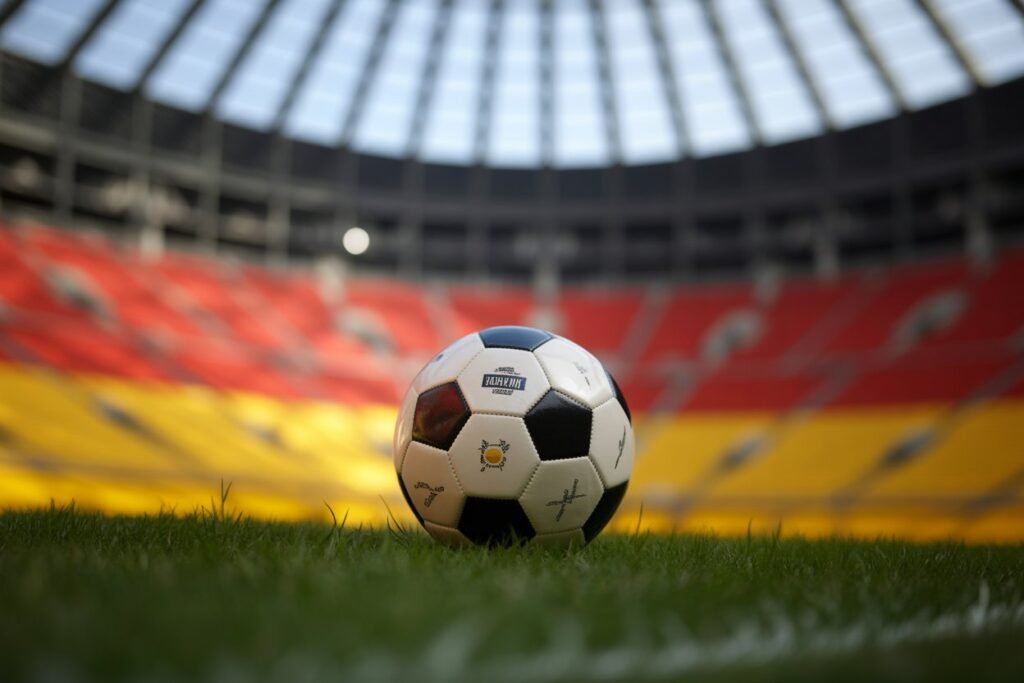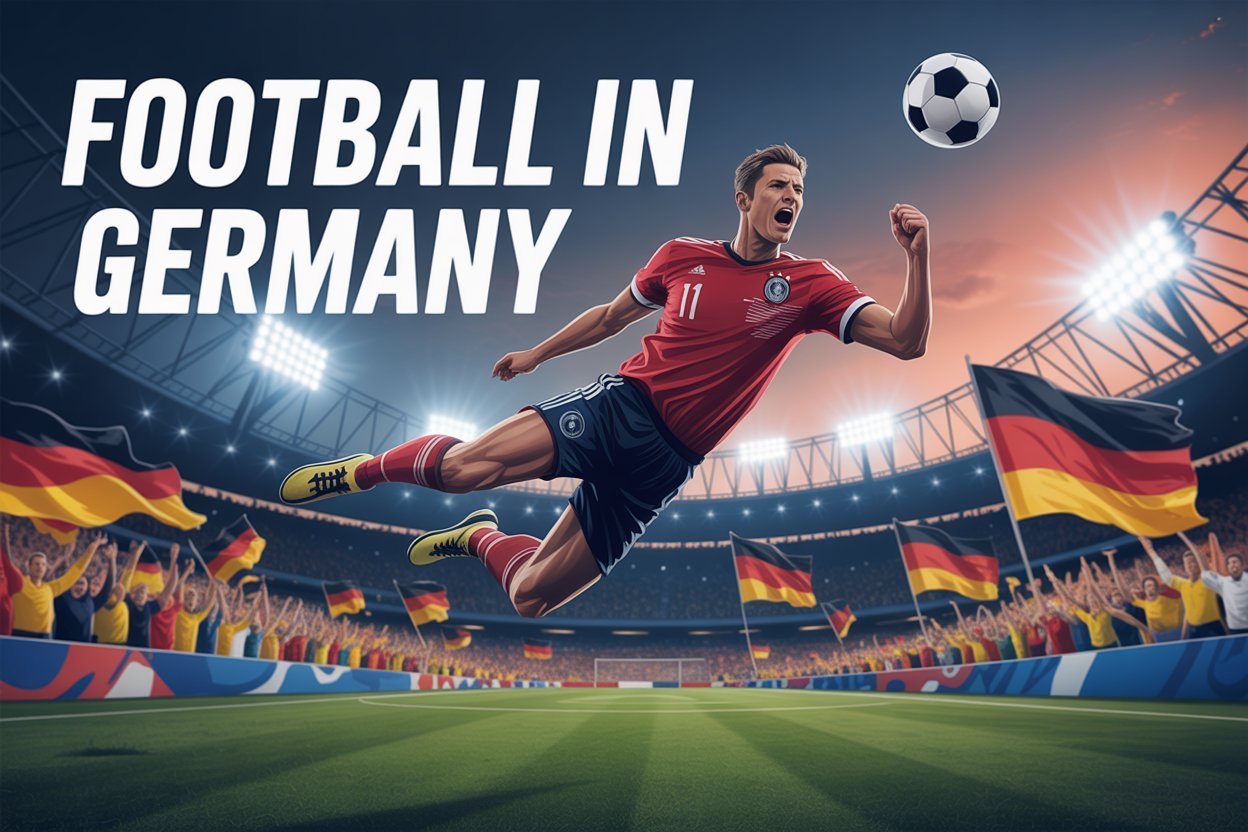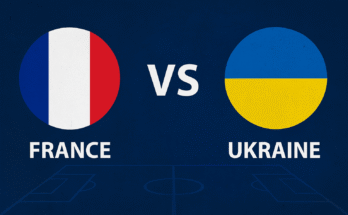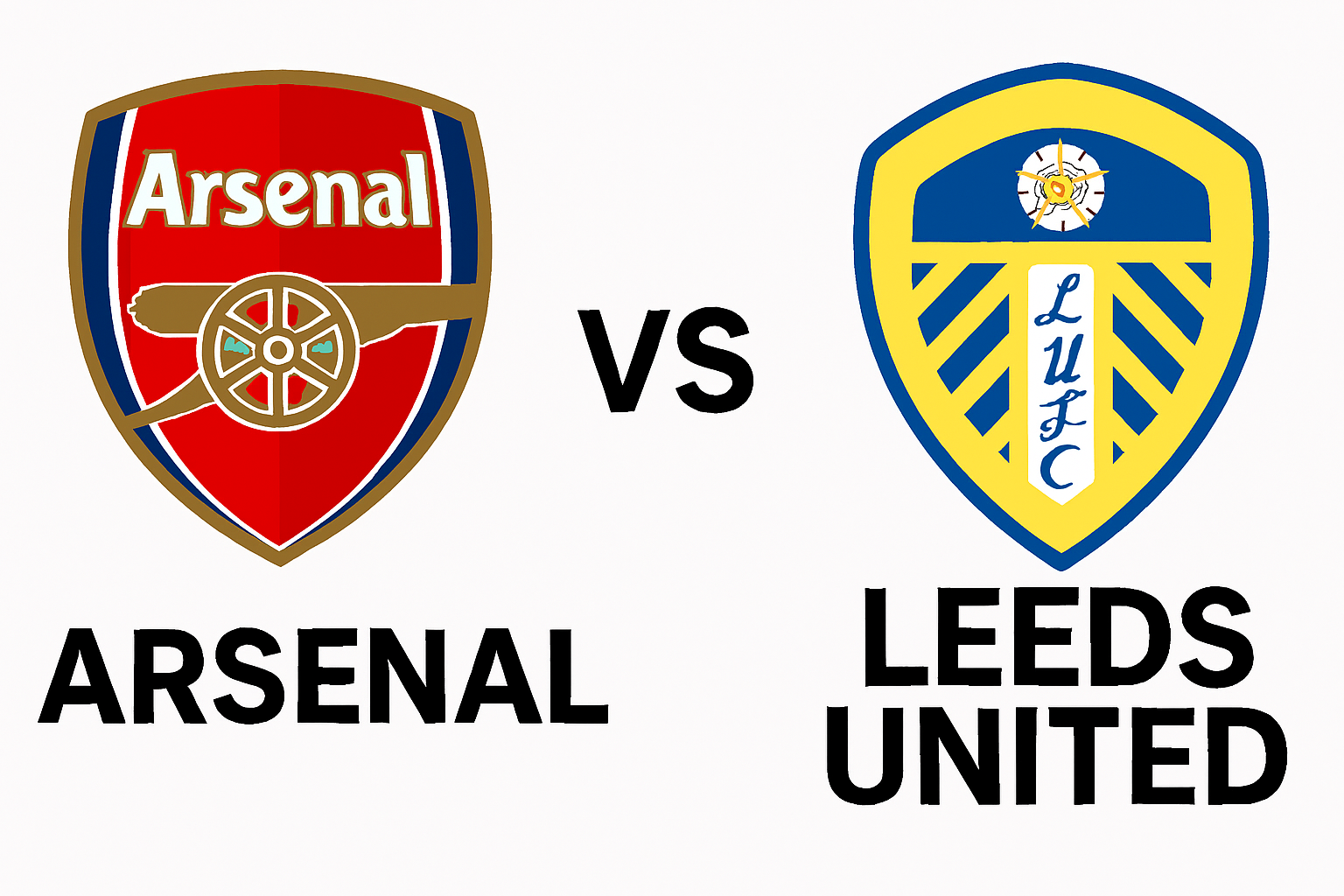Germany maintains one of the most appealing sports cultures in Europe with legendary clubs, faithful fans, and an operational youth development system. From hustle and bustle of cities such as Berlin and München, to hometowns that are proud to have local representation, there are matchdays which will build excitement from wherever you are located. German football is known not just for the tactics played by the very best, or the overall positive atmosphere, but for its continued community engagement. All over Germany, youth academies are producing young players who are technically sound and tactically perceptive to the level of professionalism, that collectively deliver the unique narratives and new stars in each new season. The competition environment allows historic juggernauts to compete with small emerging challengers and engage with fans from the opening kick of their match to the final seconds of play.

The Bundesliga: Germany’s Top football League
The Bundesliga is the highest level of professional club sport in Germany, with a total of eighteen teams competing over thirty-four exhilarating match days. This professional league began in 1963 and has grown into a global brand known for its high-scoring matches, cutting-edge performance training, and fan-friendly policies such as standing terraces and low cost tickets for fans. Each team plays each other twice in a traditional double round-robin format, once at home and once away from home. Within this competitive framework, only teams that finish in the first three spots can qualify for the UEFA Champions League: first place gets automatic entry; and second and third place qualify for the next best UEFA tournaments. To make it more exciting, teams that finish in the bottom two positions each season get relegated to the 2. Bundesliga, and the top two positions are filled with the top-performing teams from the 2. Bundesliga. For this reason, the fans and clubs simultaneously know that every match matters.
Structure and format of football Season in Bundesliga
Every Bundesliga season starts in mid-August and ends in mid-May, with a winter break in December and January so that the players can recover and participate in national cups. Matchdays are held over weekends and even at midweek on occasion to maximize the potential for fans to attend games and for the league to obtain television coverage. Points are provided using a traditional system of 3 points for a victory, 1 point for a draw, and 0 points for a loss, which leads to an overall table that often features fierce battles for European qualification and the avoidance of relegation. The financial model of the league, built on collective yearly television rights deals, a revenue-sharing policy, and licensing requirements to encourage financial discipline, has gone a long way to encourage competitive equity and providing players financial security while curbing the excessive disparities in spending observed in some other prominent competitions.
The Current champion of German football League
During the 2024–25 season, Bayern Munich again proved their supremacy at the domestic level, lifting their 34th national title for a 32nd time in the past 38 seasons. Under manager Vincent Kompany, the Bavarians clinched the title with two matches remaining, beating Bayer Leverkusen and Eintracht Frankfurt to claim the title in an exciting race to the finish. Commanded by captain Thomas Müller and featuring striker Harry Kane, Bayern displayed an attacking brand of football whilst conceding fewest goals as a side. This year’s victory showed a nice blend of experience and youth, as club alumni like Jamal Musiala had critical support around international stars. With this victory, Bayern Munich continued to cement their position as the standard of excellence in German football.
DFB-Pokal: The Heart of German football Cup
Germany’s DFB-Pokal knockout competition is one of the leading knockout tournaments in the world because it invites teams across leagues in the professional, semi-professional amateur, and amateur realm to “become” their own team. It was created in 1935 and often produces dramatic upsets due to lower tier clubs upsetting established names and getting national coverage. The event is held over a single match with all the ties settled via extra time and penalties to ensure that every round has drama and the opportunity to be under pressure. For professional clubs, the cup is appealing due to the presence of a trophy and a route to the UEFA Europa League as the cup winner automatically qualifies for the group stage. The final, traditionally played in Berlin’s Olympia Stadion in late May, is a national occasion on the calendar of German football bringing together fans across ages and sexes in togetherness celebrating the competitive depth of German football.
Road to the DFB-Pokal Final in German football Cup
The path to the final of the DFB-Pokal starts with seventy-two teams across the country’s football structure, resulting in a very wide bracket that is cleared in stages. Early rounds have amateur clubs playing against professional clubs, and from round two, for the team from the Bundesliga, those teams often must overcome very dangerous lowly ranked teams eager to play at that level. In the quarterfinals and semifinals, we then see the pressure placed on managers who balance cup ambitions with the rigors of league challenges. By the time we reach the final, the pre-final journey of both clubs could extend to five physically and mentally taxing knockout ties- with lots of pressure to perform well on-the-field and off-it.
VfB Stuttgart: Germany’s football Cup Conquerors
In the final of the 2024–25 DFB-Pokal, VfB Stuttgart won the trophy for the fourth time in their history. Stuttgart played third tier Arminia Bielefeld in the match at the Olympia Stadion on May 24, 2025, and won 4–2 with an explosive attacking performance to reflect flattered contrasted with their tough defensive work. Daring individual contributions from Stuttgart’s forwards Serhou Guirassy and Chris Führich were critical, Stuttgart managed to bottle imagination and creativity with the organization and discipline. Their success outlined the club’s revitalization under head coach Sebastian Hoeneß, Hoeneß arrived at club with a squad rebuilt with a mix of inexperienced youth prospects and experienced seasoned professionals. Stuttgart secured not just a piece of silverware with their cup victory, but also European football for the following season, which represented a significant milestone in the club’s rehabilitation at the top level of German football.
DFL-Supercup: The Prematch of German football Glory
The DFL-Supercup is the traditional opening match in the German domestic calendar that features the previous season’s Bundesliga champion against the DFB-Pokal winner in a one off match. The DFL-Supercup debuted in 1987, as a Supercups until the DFL adopted it in 2010. The match provides an early look at contenders’ form and fitness as they prepare for the long season ahead. Played in mid-August, in the middle of everything else going on in the football calendar, typically hosted at the home ground of last season’s league champion, the Supercup has become a favorite amongst fans because of the competitive feeling in conjunction with the celebratory feel and atmosphere of a season opener. While it does not hold the prestige of larger tournaments, the Supercup still provides silverware, collective confidence, and bragging rights, which starts a storyline for weeks to come.
Bayer Leverkusen: Supercup football Winners
On August 17, 2024, Bayer Leverkusen secured their first-ever DFL-Supercup title, winning 4-3 on penalties against VfB Stuttgart after the match finished 2-2 at the Bay Arena. Both Florian Wirtz and Victor Boniface formed the dynamic attacking quartet for Leverkusen, scoring in regulation time. While Stuttgart mounted a spirited fightback, Leverkusen held their nerve in the shootout and collected their first silverware of the season, rewarding a squad that earned memorable domestic double the previous season, and that also reflects the team’s quality, technical skill and resilience. For coach Xabi Alonso, it was further confirmation of his tactical approach, as well as his player development philosophy.
The Future of German football Competitions
As we think about the future, German football is poised for progress with ongoing investments in technology, sustainability, and youth development. The Bundesliga model of financial responsibility continues to serve as a model for leagues globally, striking a balance between competition and being good stewards of finances. The DFB-Pokal (Germany’s FA Cup) and DFL-Supercup will continue to remain relevant by bringing tradition into the present. As more young players emerge out of academies and clubs hone the evolution of their respective club through strategic vision, the compelling theatre and communal spirit of German football is ready to entertain domestic and international audiences for generations.



